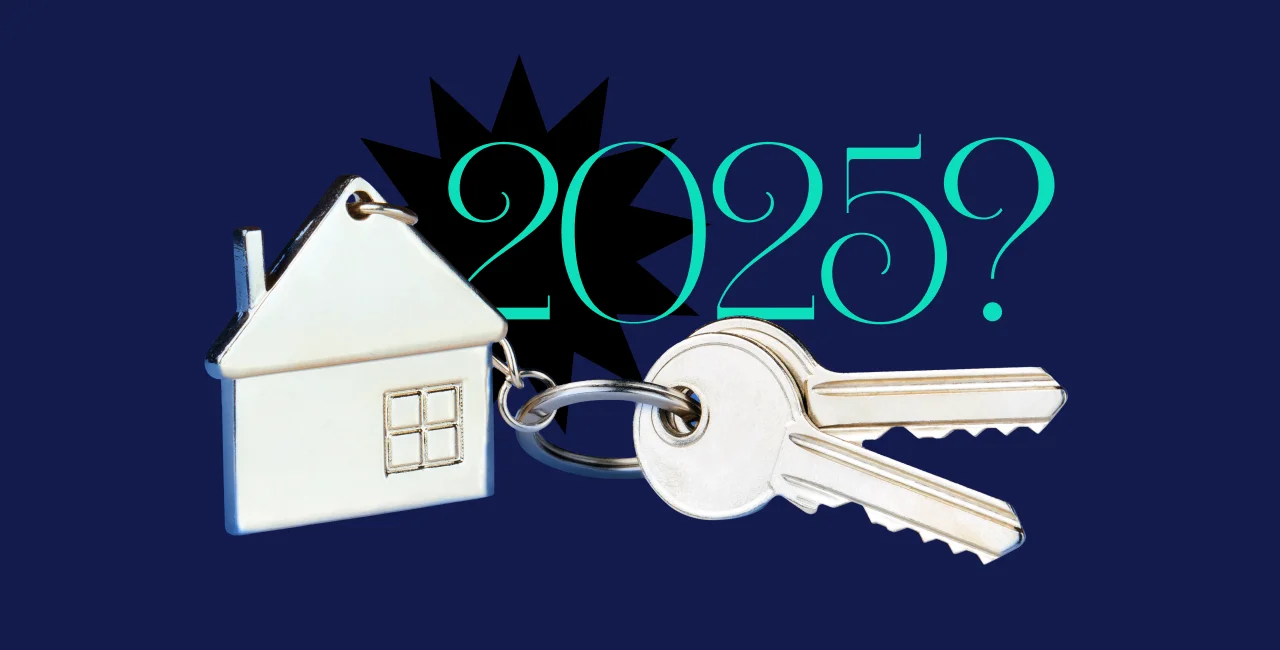It’s no secret that Prague, and Czechia more broadly, is a challenging market for homebuyers. Data from the Czech Statistical Office highlights a stark mismatch between salaries and property prices, with the latter having grown at double-digit rates over the past 12 months. For many residents and expats, homeownership remains an elusive goal.
“The fact that it takes nearly 15 gross annual salaries to afford an apartment in Prague, and that house prices rose by 10 to 15 percent in 2024, with similar increases expected this year, underscores just how difficult homeownership is right now.”
How have interest rates recently changed?
Inflation in Czechia is on a steadily downward trend—and with it, so too is the benchmark interest (two-week repo) rate set by the Czech National Bank (CNB).
Just two years ago, the headline rate was at a massive 7 percent. This fell to 5.25 percent in April 2024, and on May 9 this year, the CNB lowered the rate further, to 3.5 percent. This news is big: Czechia’s interest rate is therefore now at its lowest level since late 2021.
What are the current mortgage interest rates?
On a commercial level, the Swiss Life Hypoindex survey shows that current rates are hovering at around 4.96 percent. This, in line with the CNB’s rates, is on a clearly declining trend: this time last year, the rate stood at 5.5 percent. The year before that, it was 6.3 percent.
“We expect 4.6 percent interest rates by the fourth quarter of 2025, which will likely lead to increased housing demand and property prices, ” says Tomáš Jedlička, a financial advisor for Swiss Life.
“We recommend buyers act now before prices bounce back. Rates can always be refinanced, but because property prices are still rising, the chance to buy at current prices will be limited or even impossible. Interest rates are adjustable, purchase prices will never change,” he adds.
Falling interest rates mean one very simple thing: 2025 could be the best possible time to take out a mortgage (or refinance an existing one), despite a challenging property market. If rates fall further, which economists broadly expect, demand for buying apartments or houses will go up.
“Buyers today can still secure deals under 4.6 percent—but that window may be closing,” advises Jedlička.
The financial advisor notes that April to September is a so-called high season when prices are often higher due to increased demand. October to March, on the other hand, is a low season when discounts are more likely.
New legislation to be aware of in 2025
An update to the country’s Consumer Credit Act may affect buyers looking to refinance or switch providers.
New rules allow banks to charge higher fees—up to 100 percent of the repaid amount—if consumers repay their mortgage before the fixed interest rate period ends. This could mean paying tens of thousands of crowns instead of just hundreds.
However, the law will also make it clearer when people can repay their mortgage early without a penalty. Homeowners will still be able to repay for free at the end of a fixation period.
Jedlička also notes: “If interest rates drop significantly during your fixation period, it is still possible to adjust repayments.”
Mortgage basics: What expats need to know
When applying for a mortgage in Czechia as an expat, several key factors come into play. Deposit requirements depend on age and residency status: buyers over 36 typically need a 20 percent deposit, while those under 36 may qualify with just 10 percent. Non-EU nationals without permanent residency must provide a minimum 15 percent deposit, regardless of age.
Permanent residency isn’t required—temporary residency or valid proof of employment in Czechia is usually sufficient. However, if you're self-employed, you must be a Czech tax resident, as foreign-taxed self-employment income isn’t accepted.
Mortgage brokers can compare offers across multiple banks, negotiate better interest rates, submit all necessary documentation digitally, and handle direct communication with the banks on your behalf.
“Working with a local mortgage broker can save you time, money, and headaches,” says Jedlička. “As a direct client, you’ll likely need to visit banks in person and may not get the best rates and service available,” he adds.
The bottom line
Whether you’re a first-time buyer or considering refinancing in 2025, market signals suggest the current conditions could work in your favor—but they may not last. And with legal changes on the horizon, now is the time to assess your options and get expert help.












 Reading time: 3 minutes
Reading time: 3 minutes 

















